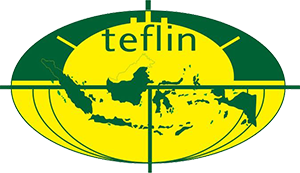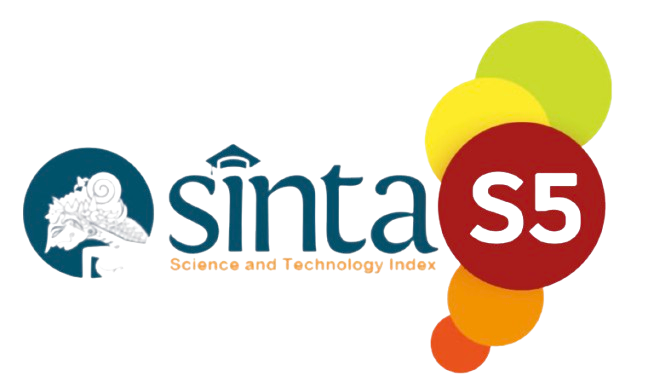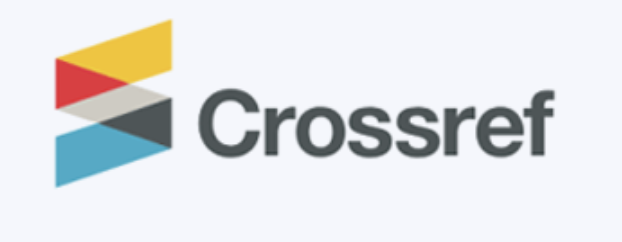Learner Autonomy Through Teacher Agency in Language Education: A Synthesis of Contemporary Research
DOI:
https://doi.org/10.52217/ijlhe.v8i1.1802Keywords:
Learner autonomy, Teacher autonomy, Language education, EFLAbstract
This qualitative literature review synthesizes contemporary research (2020–2024) on the interplay between learner autonomy and teacher agency in language education. Findings reveal learner autonomy as a multifaceted construct encompassing cognitive (metacognitive awareness), affective (motivation), and behavioral (self-regulation) dimensions, essential for lifelong language learning. Crucially, teacher agency emerges as the cornerstone for fostering autonomy, with educators adopting dynamic roles—facilitator, guide, evaluator, instructional designer—to empower students. Structural barriers (e.g., rigid curricula, exam-oriented systems), cultural constraints, and institutional limitations impede implementation, yet teachers’ professional freedom, reflective practices, and context-sensitive pedagogies bridge theory-practice gaps. The study identifies systemic challenges, including learner dependence, time constraints, and inadequate teacher training. Implications call for educational policies prioritizing decentralized decision-making, tailored professional development, and flexible curricula. Future research should employ mixed-method designs to explore socio-cultural mediators of autonomy. Sustainable frameworks must position teacher agency and learner autonomy as interdependent pillars to cultivate self-directed learners in globalized contexts.
References
Braun, V., Clarker, V., & Rance, N. (2014). How to use thematic analysis with interview data. In A. Vossler & N. Moller (Eds.), The Counselling & Psychotherapy Research Handbook, (pp. 183–197). Sage.
Ceylan, N. O. (2021). The Relationship between Learner Autonomy and Motivation . The Turkish Online Journal of Educational Technology , 20(4), 150–158.
Ding, A. C. E., Ottenbreit-Leftwich, A., Lu, Y. H., & Glazewski, K. (2019). EFL teachers’ pedagogical beliefs and practices with regard to using technology. Journal of Digital Learning in Teacher Education, 35(1), 20–39. https://doi.org/10.1080/21532974.2018.1537816
Ding, Y., & Shen, H. (2022). Delving into learner autonomy in an EFL MOOC in China: a case study. Computer Assisted Language Learning, 35(3), 247–269. https://doi.org/10.1080/09588221.2019.1681464
Gavranović, V. (2017). Enhancing learners’ autonomy through flipped classes. Proceedings Sinteza 2017: International Scientific Conference on Information Technology and Related Research, 498–502.
Haque, M. M., Jaashan, H. M., & Hasan, M. Z. (2023). Revisiting Saudi EFL learners’ autonomy: a quantitative study. Innovation in Language Learning and Teaching, 17(4), 845–858. https://doi.org/10.1080/17501229.2023.2166512
Hastomo, T., Sari, A. S., Widiati, U., Ivone, F. M., Zen, E. L., & Andianto, A. (2025). Exploring EFL Teachers’ Strategies in Employing AI Chatbots in Writing Instruction to Enhance Student Engagement. World Journal of English Language, 15(7), 93–102. https://doi.org/10.5430/wjel.v15n7p93
Hol, D., & Aydın, I. (2020). Is Technology in Our Classrooms? EFL Teachers’ Beliefs and Engagement with Technology in the Classroom. Journal of Educational Issues, 6(2), 38. https://doi.org/10.5296/JEI.V6I2.17326
Ismail, S. M., Nikpoo, I., & Prasad, K. D. V. (2023). Promoting self-regulated learning, autonomy, and self-efficacy of EFL learners through authentic assessment in EFL classrooms. Language Testing in Asia, 13(1), 27. https://doi.org/10.1186/s40468-023-00239-z
Iwata, J., Clayton, J., & Saravani, S. J. (2017). Learner autonomy, microcredentials and self-reflection: A review of a Moodle-based medical English review course. International Journal of Information and Communication Technology, 10(1), 42–50. https://doi.org/10.1504/IJICT.2017.081008
Lestari, I. W., & Hardiyanti, N. (2020). Vocabulary Learning Autonomy through Incorporation of English Songs: Indonesian EFL Students’ Perspectives. 3L The Southeast Asian Journal of English Language Studies, 26(2), 94–104. https://doi.org/10.17576/3L-2020-2602-07
Mandasari, B., Basthomi, Y., Hastomo, T., Afrianto, Hamzah, I., & Aminatun, D. (2025). The Snapshots of Indonesian Pre-Service English Teachers’ Perspectives on Integrating Technology-Based Tools to Rural Schools. Voices of English Language Education Society, 9(1), 42–57. https://doi.org/10.29408/veles.v9i1.27965
Namaziandost, E., & Rezai, A. (2024). Interplay of academic emotion regulation, academic mindfulness, L2 learning experience, academic motivation, and learner autonomy in intelligent computer-assisted language learning: A study of EFL learners. System, 125, 103419. https://doi.org/10.1016/j.system.2024.103419
Napida, M., Farhan, M., Istiara, F., & Hastomo, T. (2024). Innovative Approaches: Integrating Technology into English Language Teaching and Curriculum Design. LEXEME : JOURNAL OF LINGUISTICS AND APPLIED LINGUISTICS, 6(2), 79–86. https://openjournal.unpam.ac.id/index.php/LJLAL/article/view/41542
Nguyen, T. L. (2023). Promoting Learner Autonomy in Learning English Listening Skills through Mobile-Assisted Applications. AsiaCALL Online Journal, 14(2), 118–139. https://doi.org/10.54855/acoj.231428
Oktarin, I. B., Saputri, M. E. E., Magdalena, B., Hastomo, T., & Maximilian, A. (2024). Leveraging ChatGPT to enhance students’ writing skills, engagement, and feedback literacy. Edelweiss Applied Science and Technology, 8(4), 2306–2319. https://doi.org/10.55214/25768484.v8i4.1600
Ozer, O., & Yukselir, C. (2023). ‘Am I aware of my roles as a learner?’ the relationships of learner autonomy, self-direction and goal commitment to academic achievement among Turkish EFL learners. Language Awareness, 32(1), 19–38. https://doi.org/10.1080/09658416.2021.1936539
Ozfidan, B., El-Dakhs, D. A. S., & Alsalim, L. A. (2024). The use of AI tools in English academic writing by Saudi undergraduates. Contemporary Educational Technology, 16(4), ep527. https://doi.org/10.30935/cedtech/15013
Redmann, J. (2024). Genre‐based writing in the German classroom in the age of generative AI. Die Unterrichtspraxis/Teaching German, 57(2), 263–276. https://doi.org/10.1111/tger.12292
Shen, B., Wang, Y., Yang, Y., & Yu, X. (2023). Relationships between Chinese university EFL learners’ academic emotions and self-regulated learning strategies: A structural equation model. Language Teaching Research. https://doi.org/10.1177/13621688221144832
Susanti, A., Rachmajanti, S., & Mustofa, A. (2023). Between teacher’ roles and students’ social: Learner autonomy in online learning for EFL students during the pandemic. Cogent Education, 10(1). https://doi.org/10.1080/2331186X.2023.2204698
Tsai, Y. R. (2021). Promotion of learner autonomy within the framework of a flipped EFL instructional model: perception and perspectives. Computer Assisted Language Learning, 34(7), 979–1011. https://doi.org/10.1080/09588221.2019.1650779
Tsai, Y.-R. (2021). Promotion of learner autonomy within the framework of a flipped EFL instructional model: perception and perspectives. Computer Assisted Language Learning, 34(7), 979–1011. https://doi.org/10.1080/09588221.2019.1650779
Wang, Y., & Ryan, J. (2023). The complexity of control shift for learner autonomy: A mixed-method case study of Chinese EFL teachers’ practice and cognition. Language Teaching Research, 27(3), 518–543. https://doi.org/10.1177/1362168820957922
Yu, Z. (2023). Learning Outcomes, Motivation, and Satisfaction in Gamified English Vocabulary Learning. SAGE Open, 13(2). https://doi.org/10.1177/21582440231158332/ASSET/IMAGES/LARGE/10.1177_21582440231158332-FIG2.JPEG
Yuksel, U. (2010). Integrating Curriculum: Developing Student Autonomy In Learning In Higher Education. Journal of College Teaching & Learning (TLC), 7(8), 1. https://doi.org/10.19030/TLC.V7I8.138
Zainuddin, Z. (2018). Students’ learning performance and perceived motivation in gamified flipped-class instruction. Computers & Education, 126, 75–88. https://doi.org/10.1016/J.COMPEDU.2018.07.003
Zainuddin, Z., & Perera, C. J. (2019). Exploring students’ competence, autonomy and relatedness in the flipped classroom pedagogical model. Journal of Further and Higher Education, 43(1), 115–126. https://doi.org/10.1080/0309877X.2017.1356916














